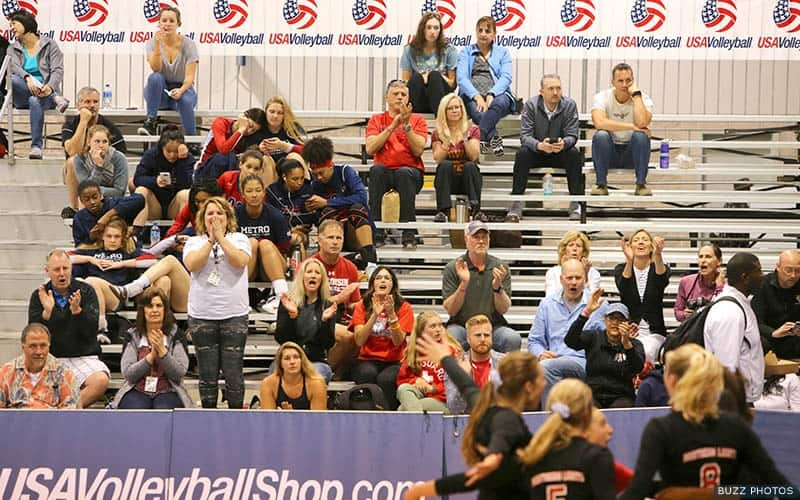
Club directors and coaches are often must work with parents to stay calm during matches.
Difficult behavior by parents might seem simply annoying, or even comical, but it can have serious negative impacts on young athletes.
Joseph Burgo, PhD, author of "The Narcissist You Know," explains how competitive parenting can be more damaging than you might realize.
“I look at competitive parenting as narcissism by proxy,” he says. “The whole narcissistic view is to look at the world as winners and losers, and a narcissist is driven to show the world that he or she is a winner. And as parents, they use their kids to do the same thing: their kids have to be winners, so that the parents can be winners by having produced winning offspring.”
Burgo adds that parents can be competitive without being narcissists.
“Most of us are competitive to some level—you have to have that competitive edge. You don’t enter into things not wanting to win,” he explains. “But often, those parents aren’t seen yelling at the ref.”
Sometimes, parents are at a loss about how they can deal with other parents who might be behaving poorly. Burgo offers some practical suggestions for how to recognize, defuse and deal with bad sportsmanship in the stands.
Share these with the parents in your club.
How Parents Can Create Sportsmanship in the Stands
Talk to their kids
Before worrying about confronting a competitive parent, make sure that your child has a solid understanding that this kind of behavior doesn’t reflect on him or her.
“Talk to your child, first of all,” says Burgo. “Talk to her about what that other person is like and try to help your child understand that they don’t have to take it internally: This is the other person’s problem. Unfortunately, everyone meets people like this throughout their lives and knowing how to deal with it at a young age, letting those comments and yelling roll off of their backs, goes a long way to helping the situation. Sometimes, you just have to live with people like that. They’re a fact of the competitive arena."
As difficult as it may be, an angry parent can be a learning experience that might actually help a child become more resilient and understanding as an adult.
Talk to the coach
“If a narcissist feels threatened, he can get mean. You have to approach these situations carefully,” says Burgo.
That means fellow parents should avoid immediate confrontation and bring it up with a coach or some other authority figure, like the club director.
“When it’s someone else’s parent, your job is to first help your kid, and second, to draw attention to it with a responsible party like the coach or ref,” Burgo says. “Talk to the coach about how this parent is negatively impacting the kids,”
Often, coaches are so used to people shouting during the games that they may not be aware of what’s happening in the stands.
“It all depends on the coach’s interpersonal skills: Is the coach going to just yell at the parents? That likely won’t go well. But some coaches are skilled enough to talk to the parents about good sportsmanship, and it can be helpful to get someone else involved rather than creating problems between you and the other parents.”
Reframe the argument
It’s likely that the parents screaming actually don’t believe that they’re doing anything offensive or wrong, and when told that they’re acting inappropriately, are more likely to become defensive than be open to critique.
Take another tact: Make sure to put the athletes first when confronting an unsportsmanlike parent.
“It’s a truth about narcissists that they don’t see themselves clearly or have a reason to change,” says Burgo. “Try to talk to that parent—even if it’s your spouse—with a ‘kids-first’ reframing. Try to frame it as ‘How does your behavior make your child feel?’ Because that behavior is extremely embarrassing for young athletes. Parents will have some empathy for their children.”
Avoid confrontation during the game
If you do feel as though you can have a discussion with the parent who’s exhibiting unsportsmanlike behavior, save the conversation for after the game.
“Some parents get really triggered in the heat of competition and behave in ways that they might not behave most of the time,” Burgo says. “The way to disarm it may be to talk about it later, not during the game.”
About TrueSport
TrueSport® is a grassroots movement born and powered by the experience and values of USADA–the U.S. Anti-Doping Agency. The TrueSport® mission is simple and bold: to change the culture of youth sport by providing powerful educational tools to equip young athletes with the resources to build the life skills and core values for lasting success on and off the field.
